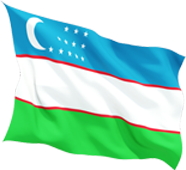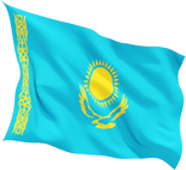The strategic goal of Uzbekistan is to build a developed state, and the algorithm of all actions and reforms is systematically focused on this. It should be noted that it is typical for developed countries that people have a high standard of living, advanced technological infrastructure, and a developed economy. According to the classification of the International Monetary Fund, Uzbekistan belongs to the group of developing countries. The transition from a developing State to a list of developed countries requires the implementation of a number of reforms in the field of economy, welfare of the population, human rights and freedoms.
Thanks to the change of political power that took place in Uzbekistan in 2016, as well as the strong political will to reform, several important documents were adopted in the country. In particular, as an example of this, we can cite the Action Strategy for the five priority areas of development of the Republic of Uzbekistan for 2017-2021, The Development Strategy of the New Uzbekistan for 2022-2026, consisting of seven priority areas, the Strategy “Uzbekistan – 2030″, consisting of five priority areas. In addition, the adoption of a new version of the Constitution of the Republic of Uzbekistan at a referendum held on April 30, 2023, served to strengthen the constitutional foundations of the creation of a New Uzbekistan. Also on the same day, for the second time in the history of independent Uzbekistan, the new Labor Code came into force.
It should be noted that one of the characteristic aspects of the new version of the Constitution was that in article 1 of the Constitution Uzbekistan was designated as a social state. The social state model is based on the principle of social justice, while labor rights are considered the most important element of this principle. The announcement of the construction of a social state enriched the Constitution of the Republic of Uzbekistan with new content, re-including a number of rights related to the right to work and the exercise of labor activity. These include the right to decent work, the right to freely choose a profession and type of activity, the right to work in working conditions that meet the requirements of safety and hygiene, fair remuneration without any discrimination at work and not less than the established minimum remuneration, the right to protection from unemployment in accordance with the procedure established by law (article 42), the right to vocational training and retraining (article 43), the prohibition of forced labor, the prohibition of any form of child labor (article 44), the right to rest, the right to limited working hours (article 45).
It should be noted that the view of the basic rights and duties of an employee as principles of labor law was widely spread in the thirties of the XX century. Despite the fact that almost a century has passed, these views have still not lost their relevance for modern labor law. Therefore, it is appropriate to note separately the amendments made to the Constitution of the Republic of Uzbekistan in a new edition concerning the right to work. First of all, it should be noted that the right to work has been replaced by the “right to decent work”. As part of the constitutional reforms, the right of citizens to work has acquired a new look and has been supplemented with the word “worthy”. Now, “decent work” means jobs with fair wages, adequate working conditions and reliable social protection. For example, in this regard, Shukhrat Ganiev, an independent human rights activist who has been following the cotton harvesting process together with the International Labor Organization for several years, says: “We need to focus on creating decent jobs. In Uzbekistan, people need a job with decent wages and good working conditions”. It is appropriate to recognize that Uzbekistan has the right to decent work, that is, work corresponding to the profession, qualifications and specialty, as well as work paid in accordance with the quantity and quality of labor, employment with favorable working conditions.
The next innovation was to change the choice of a free profession to “free choice of profession and type of activity”. It should be noted here that the right to choose a profession is the realization of the right to work only by concluding an employment contract. On the other hand, the right to work can also be realized in such forms as engaging in entrepreneurial activity, concluding civil law contracts for the performance of works and the provision of services, entering the civil service, self-employment. Another important aspect is related to the right to work in fair working conditions, enshrined in article 37 of the Constitution of the Republic of Uzbekistan, which has become invalid. Based on the fact that this right is a general concept, clarifications have been made to article 42 of the Constitution of the Republic of Uzbekistan in a new version.
Also, the new version of the Constitution established a separate norm prohibiting any form of child labor. We can say that this norm represented a strong political will in our country to ensure that child labor is no longer allowed. It is worth noting that since April 30, 2023, a new labor code has entered into force in Uzbekistan. In this code we see new changes in the legal regulation of labor relations. One of them is that article 3 of the Labor Code lists for the first time the basic principles of regulating labor relations. They included:
1) equality of labor rights, prohibition of discrimination in the sphere of work and occupation; 2) freedom of work and prohibition of forced labor; 3) social partnership in the field of labor; 4) guarantee of labor rights and performance of labor duties; 5) inadmissibility of deterioration of the legal status of the employee.
It should be noted that the above-mentioned principles practically correspond to the fundamental rights and principles in the field of work provided for in the ILO Declaration adopted on June 18, 1998. In particular, this Declaration contains the following basic rights and principles in the field of labor: a) recognition of freedom of association and recognition of the right to collective bargaining; b) prohibition of all forms of forced labor; c) prohibition of child labor; d) non-discrimination in the sphere of work and occupation.
These basic rights and principles are reflected in the 8 main ILO conventions (№29, 87, 105, 98, 100, 111, 138, 182), All of which have been ratified by Uzbekistan. It is also worth noting that the basic rights and principles in the Declaration were not only labor rights, but also constitutional rights and principles.
According to researchers M.Rakhimov, N.Kuryanov, forced labor in Uzbekistan is widespread in the forms of cotton picking and other agricultural work, cleaning and landscaping, repair work at workplaces and other places, construction, recreation and participation in duty on holidays. According to the data, forced labor in cotton cultivation in Uzbekistan has decreased from 14% in 2015 to 1% by 2021. Uzbekistan is the sixth largest cotton producer in the world. Under the leadership of President Sh. Mirziyoyev, modernization of the former model of the country’s agrarian economy began and forced labor and child labor, previously used in cotton harvesting, were abandoned. According to the Director General of the ILO G.According to Ryder, Uzbekistan has stopped the systematic use of forced labor and child labor in cotton growing, which will allow the country to take a higher place in the production and supply chain, as well as create millions of permanent decent jobs in the textile and clothing sector.
It is worth noting that for the first time a boycott of Uzbek cotton was announced in 2009. Since then, 331 brand and clothing companies, including such as Adidas, Zara, C&A, Gap Inc., H&M, Levi Strauss & Co., Tesco and Wal mart, have announced a boycott of Uzbek cotton. For 2021, based on the results of independent monitoring of the cotton harvest conducted by the Uzbek Forum for Human Rights, The Cotton Campaign coalition has canceled the boycott of Uzbek cotton. On April 9, 2021, Uzbekistan received the status of a beneficiary of the Common System of Privileges “GSP+” of the European Union. This decision was made in 2021 due to the fact that child and forced labor in the cotton harvest was not allowed in the country. In May 2022, the International Labor Organization and the World Bank completed a project for independent monitoring of cotton harvesting, and at the request of the Government of Uzbekistan, the Union of Workers and Employers, a new program “Better Work” was launched in the country. In Tashkent, a memorandum of understanding was signed on the launch of this program, as well as measures of cooperation on sustainable development for 2023-2024 between Better Cotton and the National Commission for Combating Human Trafficking and Forced Labor. A special mention of these achievements was made by the President of the Republic of Uzbekistan at his speech at the 78th session of the UN General Assembly.
The “Better Work” program, launched in Uzbekistan, allows local companies to establish partnerships with global brands. For example, on March 25, 2023, the world-famous Disney company published a list of supplier countries, which also included Uzbekistan. It should be noted that one of the main conditions for cooperation with global brands is the availability of a Better Work program in a particular country. The fact that the principles provided for by the Constitution of the Republic of Uzbekistan and the Labor Code are called “basic principles” and should be perceived as conditional.
Shukhratjon Ismoilov,
Head of the Department of Labor LawTashkent State Law University, Doctor of Law











